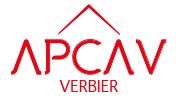
Votation du 28 septembre 2025 : abolition de la valeur locative et introduction d’un impôt sur les résidences secondaires
Le 28 septembre prochain, le peuple suisse se prononcera sur une réforme majeure du système fiscal : l’abolition de la valeur locative et l’introduction d’un impôt cantonal sur les résidences secondaires.
Cette réforme, qui concerne à la fois les propriétaires de résidences principales et secondaires, suisses comme étrangers, aura des répercussions importantes sur l’ensemble de la population et sur l’équilibre fiscal de notre pays.
Nous vous encourageons à vous informer et, pour ceux qui en ont la possibilité, à aller voter.
Position de l’APCAV
- Une fausse bonne idée : si la suppression de la valeur locative paraît séduisante, elle est selon nous le résultat de compromis politiques boiteux qui risquent de créer plus de problèmes qu’ils n’en résolvent.
- Un objectif légitime mais d’autres moyens possibles : soulager les propriétaires, souvent des retraités, qui ont remboursé leurs dettes et qui doivent encore payer un impôt sur un revenu fictif est défendable. Cela pourrait cependant se faire autrement (exemption dès un certain âge, baisse de la valeur locative sur les biens amortis, etc.).
- Perte de déductions: la réforme supprimerait la possibilité de déduire les intérêts hypothécaires ainsi que les autres frais passifs, par exemple ceux découlant d’un crédit lombard ou d’un prêt à la consommation ainsi que les frais d’entretien et de rénovation, y compris dans le domaine de l’efficacité énergétique (avec des exceptions cantonales possibles).
- Un frein à la transition énergétique: en supprimant les incitations fiscales pour les rénovations énergétiques, cette réforme va clairement à l’encontre des objectifs climatiques de la Suisse.
- Un risque accru de travail au noir: sans possibilité de déduire leurs travaux, certains propriétaires pourraient se tourner vers des solutions non déclarées, au détriment de l’économie officielle et de la qualité des constructions.
- Un danger pour le secteur de la construction: déjà affaibli par la Lex Weber, ce secteur essentiel à l’économie valaisanne serait de nouveau mis à mal, alors qu’il représente près de 20 % du PIB cantonal et plus de 10 % des emplois.
- Une réforme qui risque de pénaliser la classe moyenne : déjà fragilisée par la hausse du coût de la vie, elle subirait un transfert de charges fiscales au bénéfice d’autres catégories.
Rappel historique : qu’est-ce que la valeur locative ?
- Introduite en 1934 (Confédération) et en 1945 (canton du Valais), la valeur locative vise à éviter que les propriétaires soient trop avantagés par rapport aux locataires qui doivent payer un loyer. On considère que les propriétaires ont un avantage économique et le rôle de la valeur locative est de compenser cette inégalité.
- Elle correspond au revenu théorique annuel qu’un bien pourrait générer s’il était loué. En Valais, la valeur locative brute est fixée à 60 % du loyer de marché, puis réduite de 20 % pour déterminer la base imposable. A noter qu’en Valais, les valeurs locatives sont plutôt basses et amenées à augmenter dans le futur si le projet de réforme est refusé. Actuellement, au sein de la Commune de Val de Bagnes, la valeur locative est revue uniquement en cas de vente ou de transformation alors qu’elle pourrait théoriquement être révisée tous les deux ans.
- Trois projets de réforme ont déjà échoué en votation (1999, 2004, 2012).
Que propose la réforme du 28 septembre 2025 ?
- Suppression de la valeur locative : les propriétaires occupants ne seraient plus imposés sur ce revenu fictif.
- Nouvel impôt cantonal sur les résidences secondaires : les cantons pourraient instaurer une taxe foncière ciblée pour compenser les pertes fiscales. Cela implique un amendement de la Constitution suisse. C’est sur ce principe que nous voterons le 28 septembre. Une double majorité de la population et des cantons est requise. En cas d’acceptation de la réforme, il est très vraisemblable que le Valais introduira un nouvel impôt sur les résidences secondaires (impôt foncier). Cependant, nous ne savons rien pour le moment au sujet de la façon dont cet impôt sera calculé.
- Fin des déductions : plus de déduction des intérêts hypothécaires, frais d’entretien, rénovations ou mesures d’économie d’énergie au niveau fédéral. Les cantons pourraient maintenir certaines déductions possibles pour les mesures d’économie d’énergie et de protection de l’environnement, mais uniquement jusqu’en 2050.
- Suppression de la déduction des intérêts passifs : actuellement, il est possible de déduire l’ensemble des intérêts passifs (crédits lombards, crédits à la consommation, prêts bancaires ou autres dettes privées) jusqu’à concurrence des revenus de la fortune mobilière et immobilière, plus un forfait de CHF 50’000.
Avec la réforme, ces déductions disparaîtraient, ce qui signifie que des contribuables qui ne sont pas propriétaires mais qui ont contracté d’autres formes de crédit seraient également touchés. - Mesure transitoire pour primo-accédants : afin de ne pas pénaliser les jeunes ménages qui accèdent pour la première fois à la propriété, il serait encore possible de déduire une partie des intérêts hypothécaires lors de l’acquisition d’une première résidence principale. Cette déduction serait plafonnée à CHF 10’000 la première année pour un couple (CHF 5’000 pour une personne seule). Elle diminuerait progressivement chaque année et disparaitrait après 10 ans. Cela ne s’appliquerait pas aux résidences secondaires.
- Lien juridique : si l’impôt sur les résidences secondaires est refusé, la suppression de la valeur locative ne pourra pas entrer en vigueur.
A noter que les biens mis en location continueront à être imposés comme aujourd’hui, sur la base du revenu locatif effectif (loyers encaissés) et les charges liées au bien (entretien, intérêts hypothécaires, etc.) restent déductibles au prorata du revenu locatif déclaré.
Arguments en faveur du OUI
- Supprimer un impôt sur un revenu fictif jugé injuste.
- Décourager l’endettement : aujourd’hui, celui qui conserve une hypothèque ou s’endette est « récompensé » fiscalement. Ceux qui remboursent sont pénalisés.
- Soulager les retraités, souvent sans dettes mais toujours imposés sur une valeur locative en augmentation, qui représente par ailleurs souvent une part élevée de leurs revenus une fois retraités.
- Faciliter l’accès des jeunes propriétaires, grâce à la déduction temporaire des intérêts hypothécaires.
Arguments en faveur du NON
- Ralentissement des rénovations énergétiques, pourtant cruciales pour la transition énergétique.
- Frein à l’entretien des biens immobiliers : sans déductions, certains propriétaires pourraient différer les travaux ou recourir au travail au noir (estimation CHF 0,5 mia/an).
- Impact négatif sur le secteur de la construction, pilier de l’économie valaisanne (20 % du PIB cantonal, plus de 10 % des emplois). Après la Lex Weber, ce secteur pourrait subir un nouveau choc.
- Risque de hausse d’impôts pour la classe moyenne, pour les propriétaires de résidences secondaires et, indirectement, pour les locataires si les collectivités compensent les pertes fiscales.
Qui seraient les gagnants en cas de OUI ?
- Les propriétaires sans dettes ni travaux en perspective, surtout les retraités.
- Les propriétés luxueuses en résidence principale: leur revenu imposable diminuerait fortement.
Qui seraient les perdants en cas de OUI?
- La classe moyenne, qui s’endette pour acheter un logement et dont le modèle financier repose sur la déductibilité des intérêts et travaux.
- Les collectivités publiques : pertes estimées à 2 milliards au niveau national et 70 millions pour le Valais (moitié canton, moitié communes). Le manque à gagner dépendra cependant du niveau des taux d’intérêt.
La question de savoir si cette réforme sera bénéfique ou non pour les propriétaires dépend donc largement de la situation individuelle de chaque contribuable : niveau d’endettement, âge, type de bien, besoins de rénovation, résidence principale / secondaire, etc. Il est donc difficile de tirer une conclusion générale pour l’ensemble des propriétaires. C’est aussi ce qui explique les fortes disparités d’opinion, y compris au sein des partis politiques.
Et les biens loués ?
Il est important de préciser que la réforme ne concerne que les logements occupés par leur propriétaire. Les biens mis en location continueront à être imposés comme aujourd’hui, sur la base du revenu locatif effectif (loyers encaissés).
Dans ce cas, le régime fiscal reste inchangé : les loyers demeurent imposables et les charges liées au bien (entretien, intérêts hypothécaires, etc.) restent déductibles au prorata du revenu locatif.
Cas particulier : propriétaires qui louent leur bien une partie de l’année
Beaucoup de propriétaires occupent leur logement une partie de l’année et le louent le reste du temps.
- Pour la période d’occupation personnelle, le bien ne générerait plus de valeur locative imposable en cas d’abolition de la valeur locative.
- Pour la période de location, les loyers effectifs resteraient imposables et les charges correspondantes déductibles au prorata du revenu effectif déclaré.
En résumé, dès qu’un bien génère un revenu locatif effectif, celui-ci continue à être soumis à l’impôt, indépendamment de la réforme.
Quelles conséquences pour les personnes bénéficiant d’un forfait fiscal
Pour les personnes domiciliées en Suisse mais non actives dans le pays, la valeur locative constitue aujourd’hui une base importante du calcul de leur impôt :
- Le montant imposable est fixé au minimum à 7 fois la valeur locative du logement principal.
- En Valais, le montant minimal est de CHF 250’000 pour l’impôt cantonal et communal et de CHF 400’000 pour l’impôt fédéral.
- Ces montants peuvent donner lieu à des assiettes fiscales élevées, notamment pour les chalets de luxe en montagne.
Si la valeur locative disparaît, elle continuerait cependant à servir de base pour déterminer le montant minimum sur la base duquel le forfait est déterminé.
Conclusion
La votation du 28 septembre 2025 touche bien plus que les seuls propriétaires. Elle pose la question de l’équilibre entre équité fiscale, financement des collectivités publiques et soutien à la classe moyenne.
L’APCAV estime que cette réforme est une fausse bonne idée, qui risque de créer plus de déséquilibres qu’elle n’en corrige. Mais au final, c’est à chacun de se forger son opinion.
Nous vous encourageons vivement à vous informer et, si vous en avez la possibilité, à exercer votre droit de vote le 28 septembre prochain.
Nous restons par ailleurs à votre disposition pour toute question relative à cette importante réforme de notre système fiscal.
Analyse rédigée par Brigitte Borel, Présidente de l’APCAV – 24 août 2025
